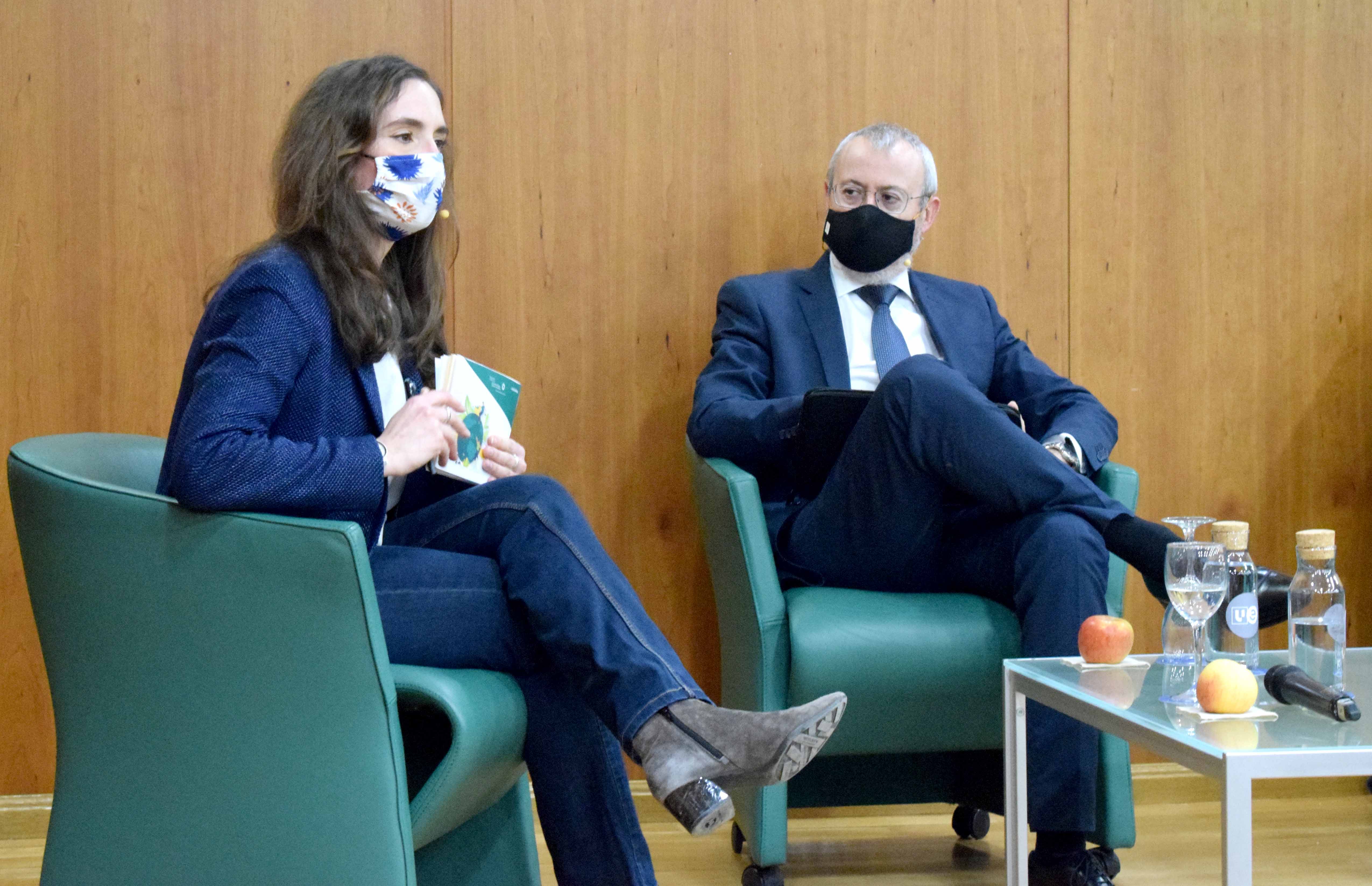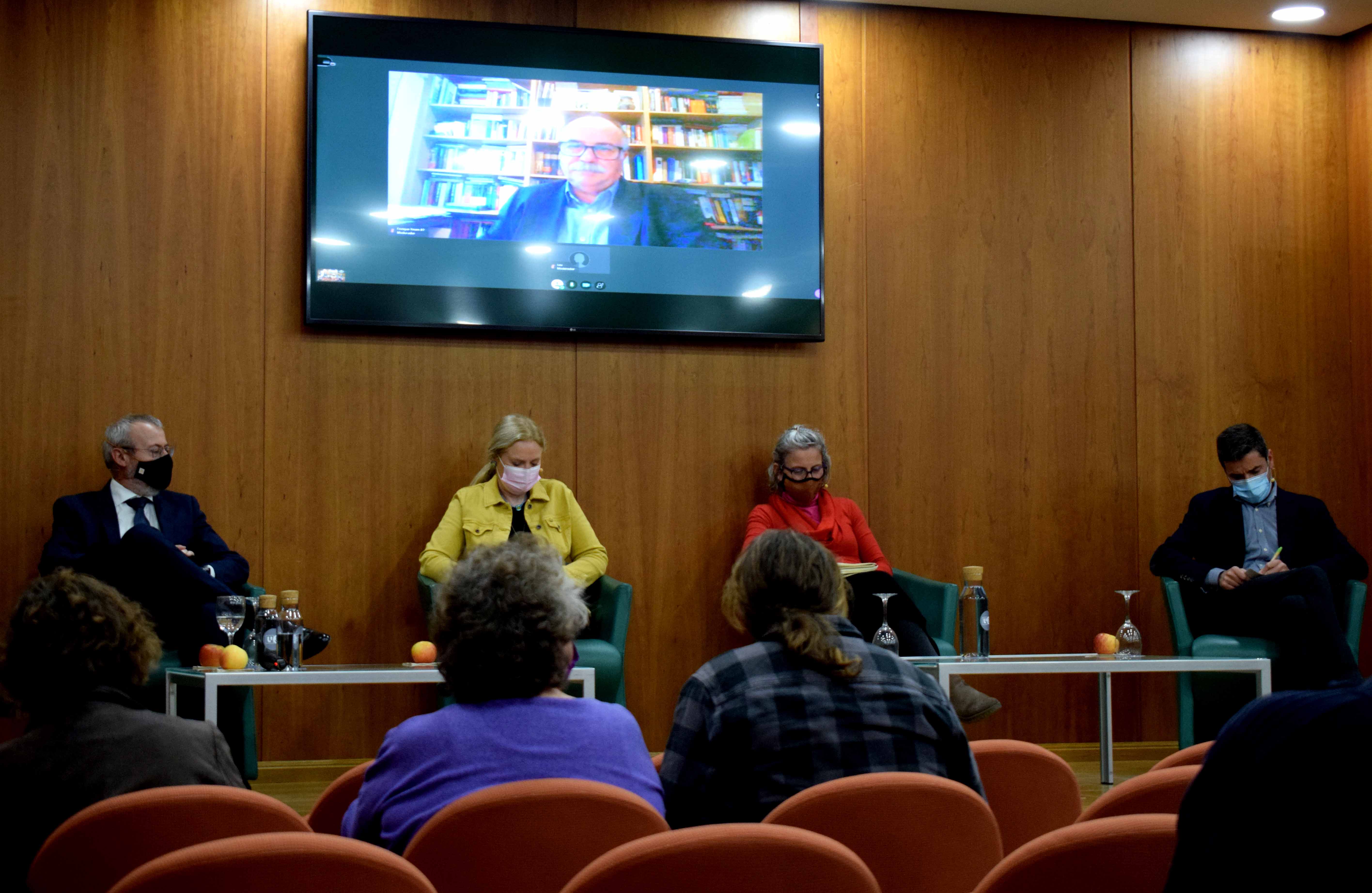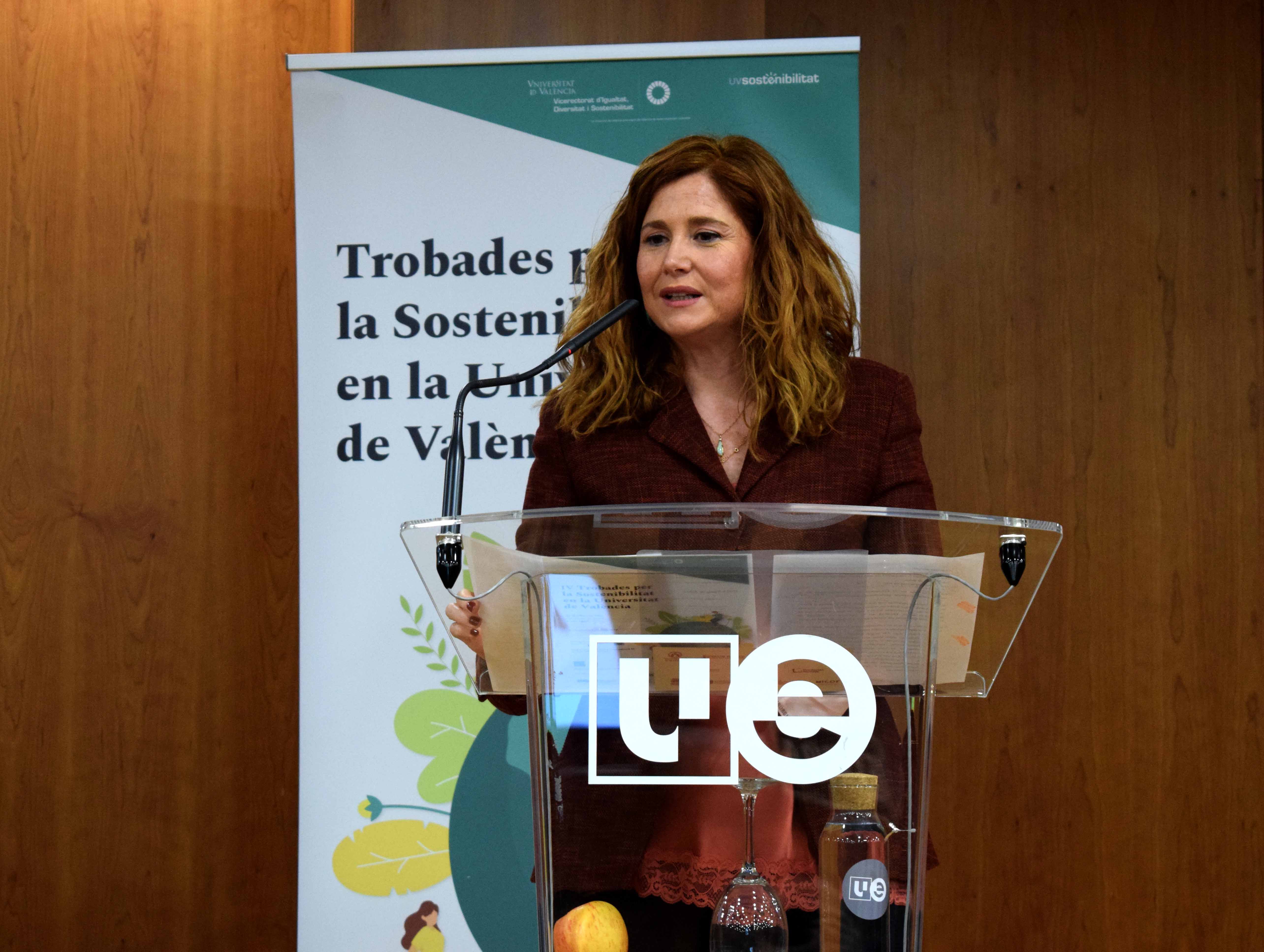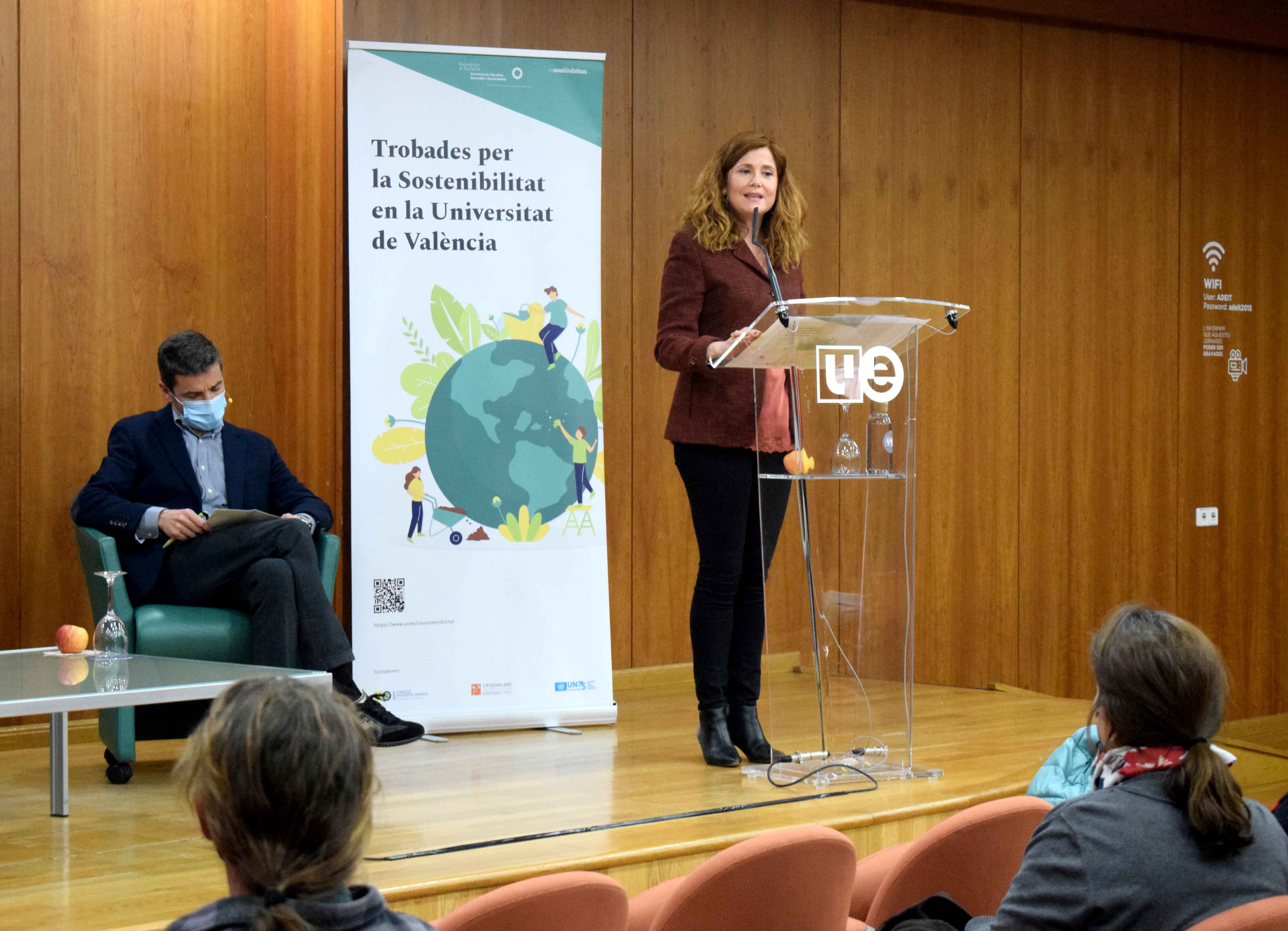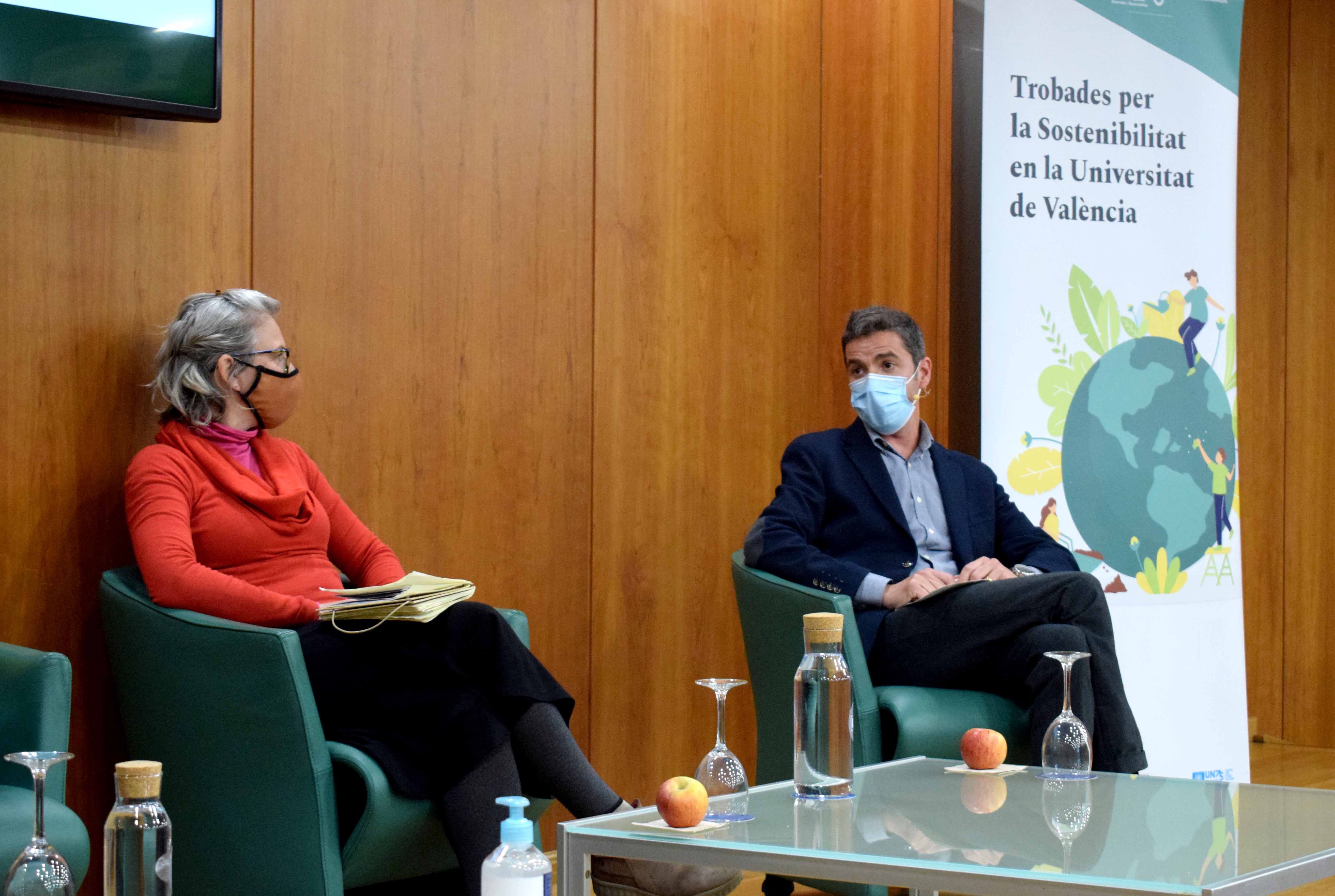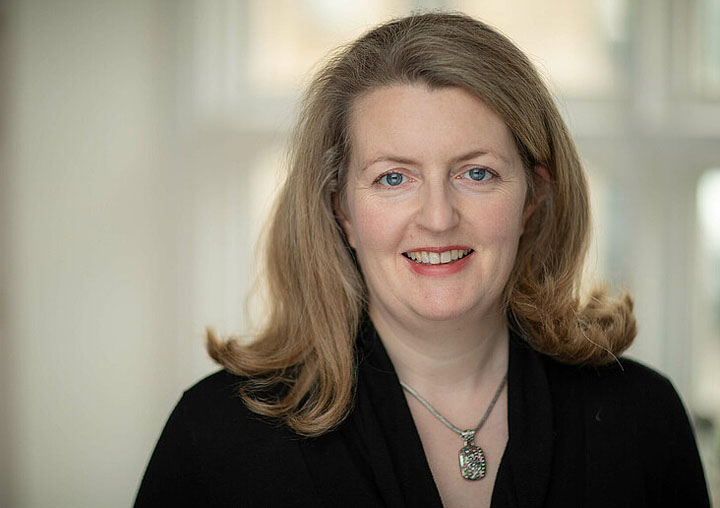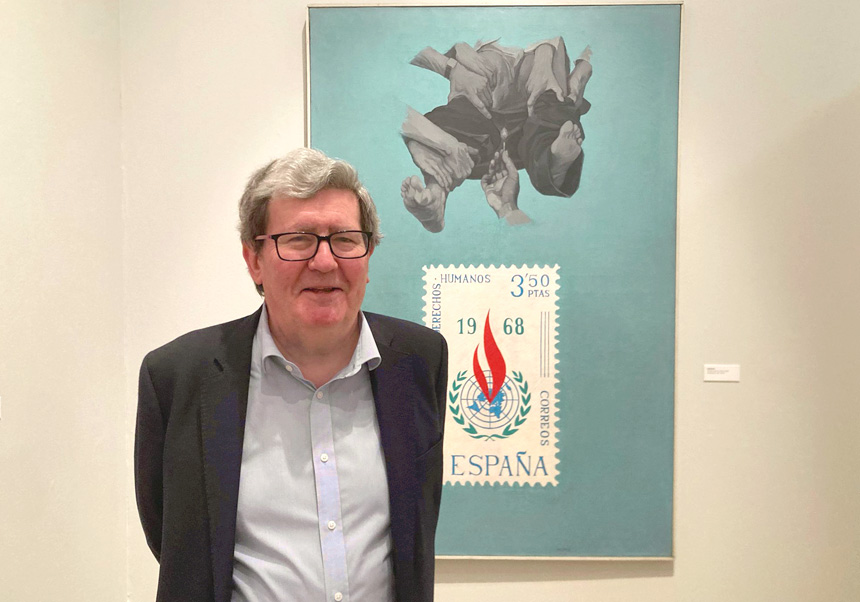Local eating, organic consumption and production models are the focus of the latest Meeting on Sustainability
- Fundació Universitat-Empresa
- February 23rd, 2022
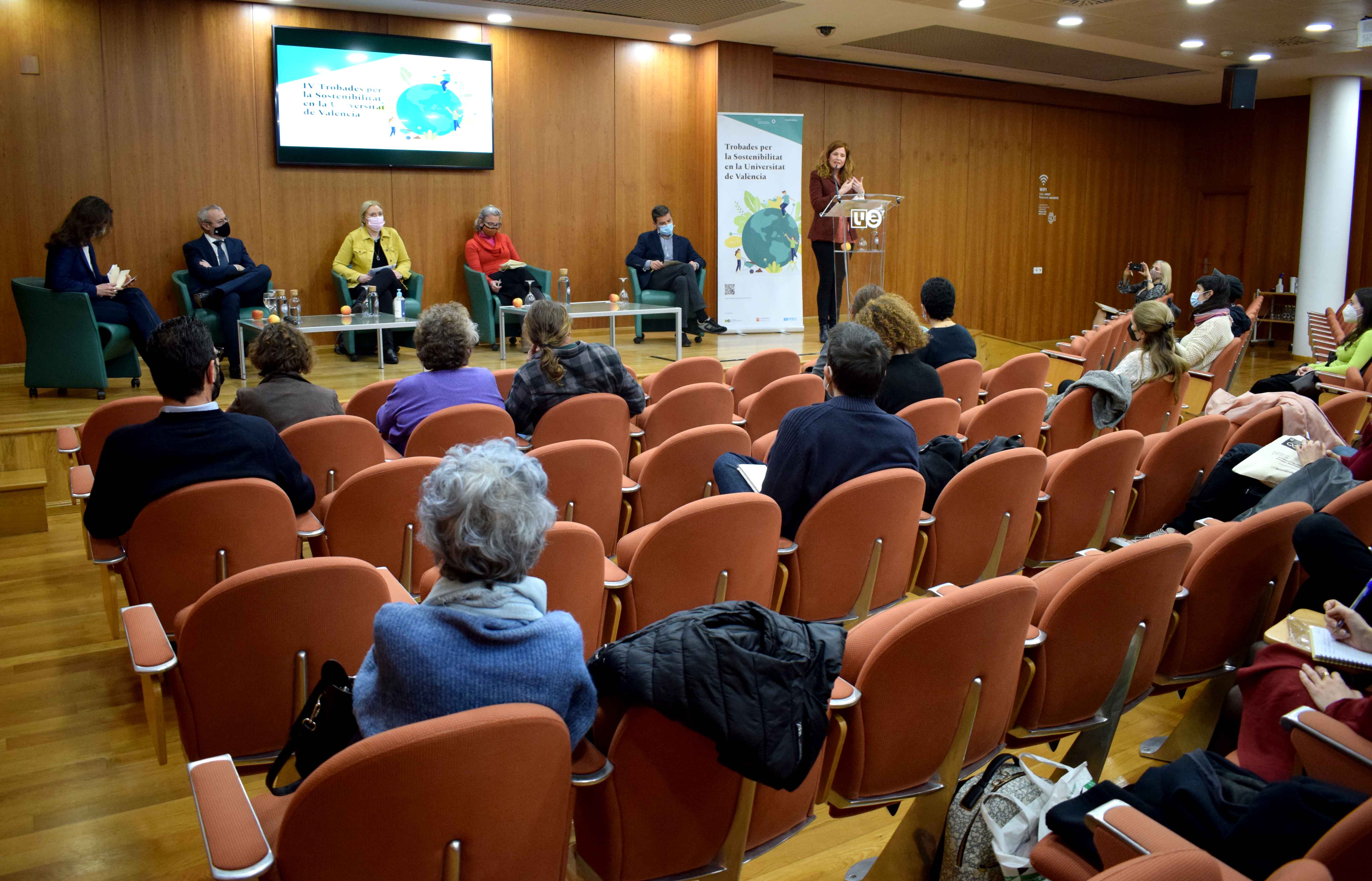
The consumption of organic products in Spain; local products; the impact of purchasing; sustainability vs. proximity; sustainability beyond corporate social responsibility. The debate on food sustainability covers a myriad of issues, and was latent in the debate held as part of the fourth Meeting for Sustainability, organised by the Vice-principal for Equality, Diversity and Sustainability of the Universitat de València in collaboration with ADEIT.
Once again, representatives from the Administration, the University, business and the associative network met around a topic of vital importance: sustainability linked to food. Elena Martínez, Vice-principal for Equality, Diversity and Sustainability at the Universitat de València, opened the session by highlighting the importance of generating a multifaceted, complex debate that brings into play the different aspects of all the agents involved: "The change linked to forms of consumption cannot take place individually but through a new social alliance", she emphasised.
The opening of this meeting also featured a speech by Enrique Yeves, Director of the Institut d'Estudis de Nacions Unides. Yeves focused on the exhaustion of the production system in order to address sustainability: "predictions augur that in 2050, 50% more food will have to be produced to reach the entire population (...). And it is not enough to produce more: we must distribute it better".
Sustainable food, organic products and proximity. Beyond fashions and prices.
The participants in the round table agreed on a fundamental aspect that marks any possible debate on food sustainability: without the economic vector, there can be no sustainability of any kind. "The market is global but the economy is local, it is determined by the territory. Supermarkets also have a social function and some models such as that of Consum and its chains allow the social nexus between the large population and the surrounding localities to be woven", explained Javier Quiles, Director of External Relations at Consum.
The problem, Edurne Caballero, president of CERAI (Centro de Estudios Rurales y de Agricultura Internacional), pointed out in one of her speeches, is that the current model focuses on economic benefit to the exclusion of cultural and social benefit. “What has happened to local markets and to fresh and seasonal products?”, she suggested.
Dolors Corella, Full University Professor of Preventive Medicine at the Universitat de València, head of Iniciatives Universitat Saludable and winner of the 2018 Jaume I Prize in the Medical Research field, raised issues such as the importance of food and its relationship with mental health, the value of caring for the countryside and its link to more sustainable consumption models: “The question should not only be why organic products are more expensive but why some non-organic products are so cheap. And they are because they are models that ruin farmers, with poverty wages. They are consumption models that create poverty”, she said.
Vicente Cabanes, head of Promotion, Communication and Institutional Relations of the Committee of Ecological Agriculture of the Valencian Community, highlighted the importance of what he called “the social story”: “Beyond whether it is a fashion, whether it is more expensive or cheaper, behind a production model there are people, there are families and ways of life. There is a social story”, said Cabanes.
The conference was closed by Pilar Rueda, delegate of the Principal for Sustainability of the Universitat de València. In her speech she focused on the value of education and social awareness to progress in more sustainable consumption models, more respectful with the environment, in short, better in social terms.




